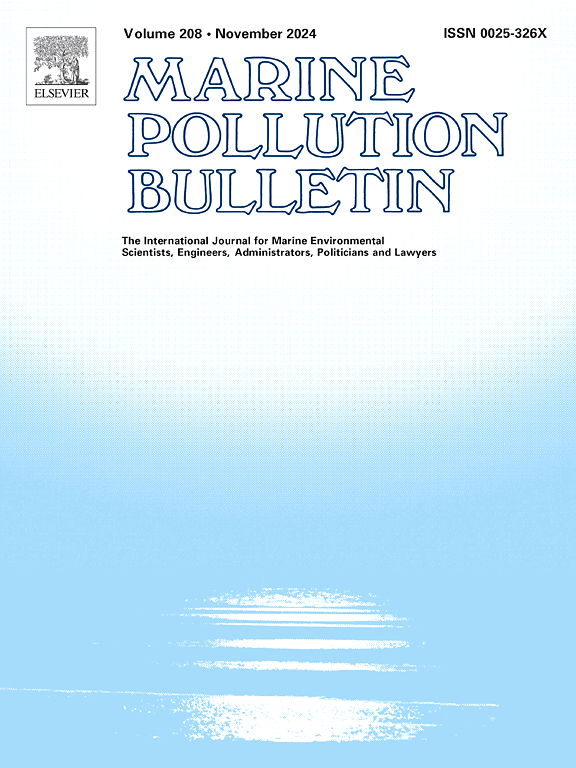Using citizen science to inventory and map abandoned, lost, or otherwise discarded fishing gear (ALDFG)
IF 4.9
3区 环境科学与生态学
Q1 ENVIRONMENTAL SCIENCES
引用次数: 0
Abstract
A considerable proportion of marine plastic pollution consists of abandoned, lost, or otherwise discarded fishing gear (ALDFG). Whether still intact or break down into fragments, ALDFG is a widespread, enduring problem, and as such, it represents an ideal case for the use of citizen science. The Fish&Click program proposes a mobile application and website to enable non-specialist observers, such as walkers, divers, or sailors, to record their sightings of ALDFG. The simple interface allows the user to characterize found gear without any expert knowledge, and an analysis of these data can shed light on the magnitude and spatio-temporal composition of the ALDFG phenomenon. This report presents the results and feedback from the first two years of Fish&Click, from May 2020 to June 2022, in the north of the Bay of Biscay, Celtic Sea, and English Channel. In addition to a database cleaning procedure, we defined an ad hoc methodology for analyzing these non-standardized data. Using this, we found that the types and quantities of found gear differ between sea and shore locations and were also different from one region to another. We discuss the pros and cons of this citizen-science program, as well as the potential for improvements that might help to mitigate pollution by ALDFG.
使用公民科学来清点和绘制被遗弃、丢失或以其他方式丢弃的渔具(ALDFG)
相当大比例的海洋塑料污染由废弃、丢失或以其他方式丢弃的渔具(ALDFG)组成。无论是完好无损还是分解成碎片,ALDFG都是一个广泛存在的持久问题,因此,它代表了公民科学应用的理想案例。Fish&;Click计划提出了一个移动应用程序和网站,使非专业观察者,如步行者,潜水员或水手,可以记录他们看到的ALDFG。简单的界面允许用户在没有任何专业知识的情况下表征发现的齿轮,对这些数据的分析可以揭示ALDFG现象的幅度和时空组成。本报告介绍了fish&click前两年(2020年5月至2022年6月)在比斯开湾北部、凯尔特海和英吉利海峡的结果和反馈。除了数据库清理过程之外,我们还定义了一种专门的方法来分析这些非标准化数据。利用这一点,我们发现发现的渔具的类型和数量在海洋和海岸位置之间有所不同,并且在一个地区与另一个地区之间也有所不同。我们讨论了这个公民科学项目的利弊,以及可能有助于减轻ALDFG污染的改进潜力。
本文章由计算机程序翻译,如有差异,请以英文原文为准。
求助全文
约1分钟内获得全文
求助全文
来源期刊

Marine pollution bulletin
环境科学-海洋与淡水生物学
CiteScore
10.20
自引率
15.50%
发文量
1077
审稿时长
68 days
期刊介绍:
Marine Pollution Bulletin is concerned with the rational use of maritime and marine resources in estuaries, the seas and oceans, as well as with documenting marine pollution and introducing new forms of measurement and analysis. A wide range of topics are discussed as news, comment, reviews and research reports, not only on effluent disposal and pollution control, but also on the management, economic aspects and protection of the marine environment in general.
 求助内容:
求助内容: 应助结果提醒方式:
应助结果提醒方式:


